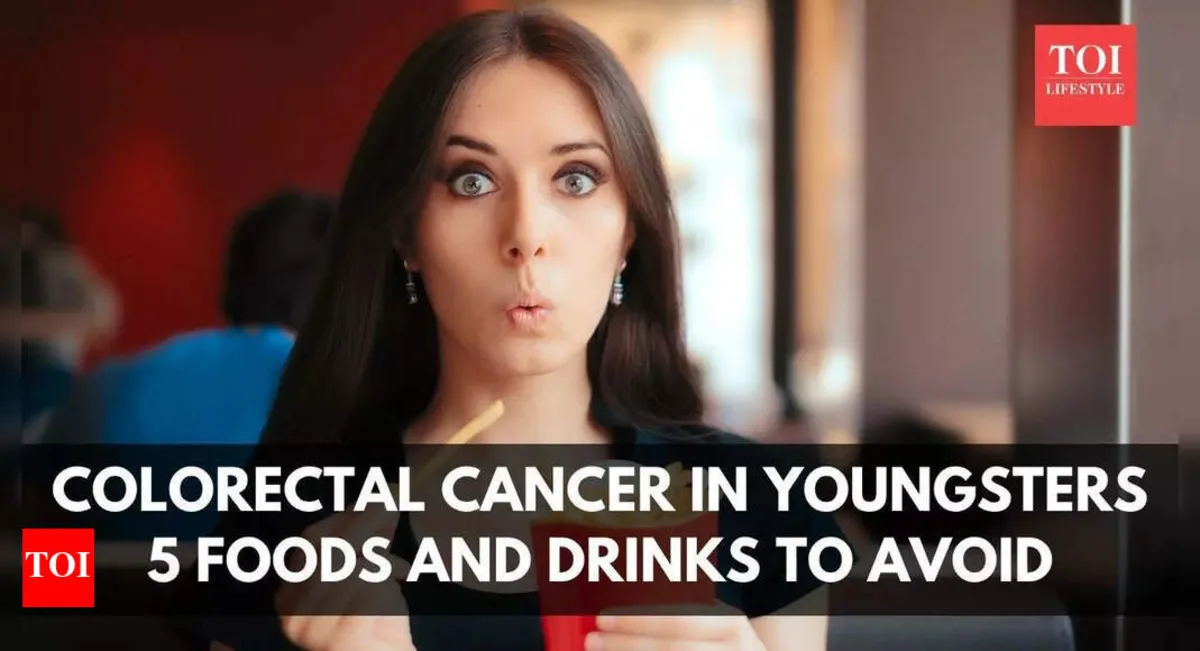
Colorectal cancer is becoming an increasingly prevalent health concern worldwide, with a particularly alarming rise in early-onset cases. Recent studies and reports indicate a significant increase in colorectal cancer among younger populations, prompting experts to examine the dietary factors contributing to this trend. Dr. Karen Zaghiyan, a board-certified colorectal surgeon based in Los Angeles, has highlighted the connection between certain everyday foods and beverages and the rising incidence of this disease.
According to a recent analysis by the Centers for Disease Control and Prevention (CDC), there has been an astonishing 185% increase in colorectal cancer among adults aged 20 to 24 years, and an even more shocking 333% increase among individuals aged 15 to 19. Dr. Zaghiyan emphasizes the gravity of this situation, stating, “We're seeing an alarming rise in young-onset colorectal cancer.” She attributes this troubling trend to several dietary choices that are common in today’s society.
Dr. Zaghiyan identifies several common foods and beverages that may be contributing to the rising rates of colorectal cancer. Here’s a closer look at these dietary culprits:
Red meat has long been associated with an increased risk of colorectal cancer. Dr. Zaghiyan advises minimizing consumption of red meats such as beef, veal, lamb, and pork. “There's about an 18% increased risk of colorectal cancer in individuals who regularly consume red meat,” she explains. Additionally, cooking methods such as charring meat over an open flame can further elevate this risk.
Another significant contributor to colorectal cancer risk is processed meats, which include items like bacon, sausages, hot dogs, ham, salami, and pepperoni. Dr. Zaghiyan notes that consuming just one serving of processed meat per day can increase the risk by 15 to 35%. She emphasizes that there is no defined safe amount of processed meat consumption.
Sweetened beverages, including store-bought juices, carbonated sodas, and fizzy drinks, not only add empty calories to your diet but also pose a serious health risk. “These beverages are artificially sweetened with high-fructose corn syrup, sucrose, and fructose,” Dr. Zaghiyan states. Research indicates that consuming two servings of sugary drinks daily can double the risk of colorectal cancer compared to those who consume them less than once a week.
Limiting or quitting alcohol is one of the most effective strategies for reducing colorectal cancer risk. Dr. Zaghiyan warns that this includes all forms of alcohol, such as beer and wine. “The risk is particularly magnified in individuals who consume alcohol daily,” she explains, reiterating that there is no safe level of alcohol consumption when it comes to cancer risk.
Ultra-processed foods, like chips and ready-to-eat noodles, are convenient but come with hidden health risks. Dr. Zaghiyan advises avoiding pre-packaged foods, which often contain emulsifiers, artificial sweeteners, and various additives. “These foods are linked with an increased risk of various gut conditions and colorectal cancer,” she adds, emphasizing the importance of being mindful of what we eat.
To combat the rising risk of colorectal cancer, Dr. Zaghiyan recommends increasing the intake of whole foods, including fruits, vegetables, and whole grains. These healthier options can help minimize the risk of developing this serious disease. Remember, while dietary choices play a significant role in health, it is essential to consult a healthcare professional for personalized advice.
Note: The information provided in this article is for educational purposes only and is not intended as medical advice. Always consult a healthcare professional before starting any new medication or treatment.